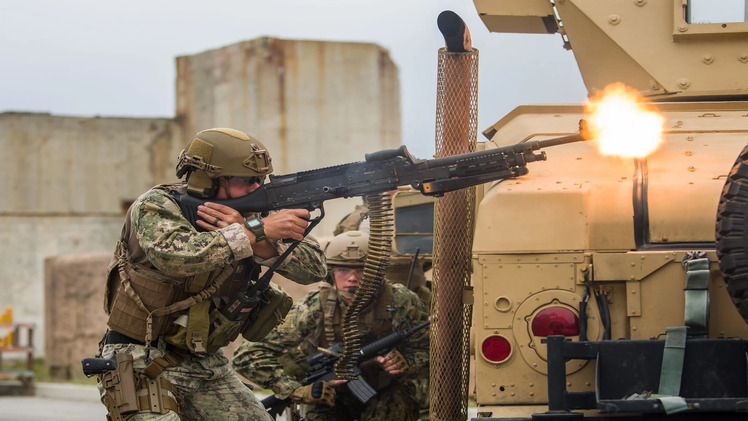The prospect of the United States going to war with Russia is a topic of immense concern and significance. While it is essential to acknowledge that war should always be a last resort and that diplomatic solutions are preferable, understanding the potential consequences of such a conflict is critical. In this article, we will examine what could happen if the U.S. were to go to war with Russia, emphasizing the severe implications of such a scenario.
Global Implications:
A U.S.-Russia war would have profound global implications. As two of the world’s most powerful nuclear-armed nations, such a conflict could lead to catastrophic consequences. The immediate risk would be a nuclear exchange, causing unimaginable devastation and loss of life. Beyond that, the ripple effects would impact the global economy, international relations, and alliances. It could potentially push other countries to take sides, further escalating the situation.
Humanitarian Crisis:
War with Russia would inevitably lead to a massive humanitarian crisis. Millions of innocent civilians would be caught in the crossfire, resulting in a severe refugee crisis and humanitarian emergencies. The toll on human lives, particularly in regions directly affected by the conflict, would be heartbreaking.
Economic Impact:
Economically, a U.S.-Russia war would have far-reaching consequences. The costs of war, including military expenditures, reconstruction, and assistance to displaced populations, would be staggering. Moreover, it could disrupt global supply chains, cause a rise in oil prices, and destabilize financial markets. The economic repercussions would be felt worldwide.
Geopolitical Repercussions:
The geopolitical landscape would be significantly altered by a U.S.-Russia war. International relations would be strained, and trust among nations would diminish. It could lead to the reconfiguration of alliances and the reshaping of global power dynamics, potentially favoring other nations like China.
Environmental Impact:
Modern warfare, especially involving powerful nations, has the potential to cause extensive environmental damage. Large-scale military operations could result in pollution, destruction of ecosystems, and potential long-term consequences for the planet.
Escalation and Proxy Conflicts:
A war between the U.S. and Russia could draw other nations into the conflict. It might trigger a chain reaction of proxy wars, with various countries supporting one side or the other. This would further complicate the situation, making it challenging to predict the outcome and duration of the conflict.
Cyber Warfare:
In addition to conventional warfare, a U.S.-Russia conflict would likely involve extensive cyber warfare. Both countries possess advanced capabilities in this domain, making it a critical aspect of modern warfare. Cyberattacks could target critical infrastructure, communication systems, and military operations.
Loss of Cultural Heritage:
Historically, armed conflicts have resulted in the destruction of cultural heritage sites. A U.S.-Russia war would pose a significant risk to cultural landmarks and historical treasures, which once destroyed, can never be replaced.
Long-Term Instability:
Even if a war were to have a clear winner, the aftermath would be marked by long-term instability. Rebuilding nations, reconciliation, and managing the consequences of the war would take years, if not decades. The scars of such a conflict would be felt for generations.
International Fallout:
A U.S.-Russia war would lead to significant consequences within the United Nations and other international organizations. There would likely be calls for investigations into war crimes, sanctions against the involved parties, and diplomatic efforts to end the conflict and ensure peace.
In conclusion, the prospect of the United States going to war with Russia is a deeply concerning and distressing scenario. While international diplomacy and conflict resolution must be prioritized, understanding the potential consequences of such a conflict is crucial. It is essential that world leaders and the global community work tirelessly to prevent such a devastating event and seek peaceful solutions to international disputes. War should always be a last resort, and the consequences of its initiation should serve as a stark reminder of the importance of peace, diplomacy, and cooperation on a global scale.


